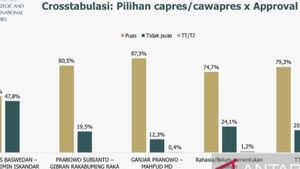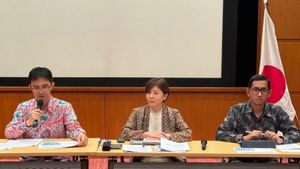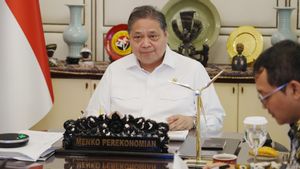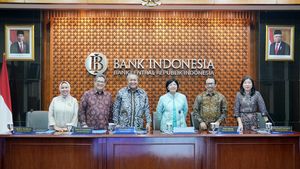JAKARTA - Indonesian Tax Observer Sabar Lumban Tobing welcomes the plan for Vice President Gibran Rakabuming Raka's candidate to increase the tax ratio by 23 percent if elected in the 2024 presidential election.
However, said Sabar, this should be a serious concern and require the cooperation of all stakeholders.
"In achieving an ideal tax ratio increase, it requires close synergy between various parties involved, especially between the Directorate General of Taxes and Taxpayers of the Ministry of Finance," said Sabar in his official statement, Wednesday, December 27.
According to him, the tax ratio is a significant indicator in the economic context of a country, which measures the proportion of tax revenue to the country's nominal Gross Domestic Product (GDP).
This is because the tax ratio has a vital role in assessing the performance of government tax revenues, as well as reflecting the government's ability to finance various public needs with domestic resources.
"The higher the tax ratio of a country, the greater the dependence of the government on the State Revenue and Expenditure Budget (APBN) for the implementation of development," he said.
Still said Sabar, one of the main obstacles faced at this time is the level of public awareness in paying taxes that are still low.
In fact, this is a key factor in achieving better tax compliance.
Be patient said, the calculation of the tax ratio can involve two approaches, namely in a narrow and broad sense.
In a narrow sense, what is applied at certain times increases in tax ratios include central tax revenues, such as Income Tax (PPh), Value Added Tax/Sales Tax on Luxury Goods (PPN/PPnBM), Land and Building Tax (PBB), Customs and Excise, and other taxes.
SEE ALSO:
Meanwhile, in a broad sense, as suggested by the International Monetary Fund (IMF) and the Organization for Economic Cooperation and Development (OECD), the increase in tax ratios includes all tax revenues, both from the central and regional levels, including Non-Tax State Revenue (PNBP) sourced from natural resource royalties (SDA).
"Currently, Indonesia is starting to adopt the calculation of the tax ratio in a broad sense, although not entirely because the regional tax component has not been included in the calculation," said Sabar.
However, said Sabar, increasing the tax ratio is also influenced by factors such as regulation and law enforcement, so setting and achieving the tax ratio target is not a simple task.
In facing this challenge, continued Sabar, the government must rely on various technical policies in accordance with applicable regulations, such as the expansion of the tax base through the integration of the Customs Identification Number (NIK) and Taxpayer Identification Number (NPWP), increasing tax extensification activity, optimizing the implementation of the core tax system (exchange system), and fair tax law enforcement.
The English, Chinese, Japanese, Arabic, and French versions are automatically generated by the AI. So there may still be inaccuracies in translating, please always see Indonesian as our main language. (system supported by DigitalSiber.id)
















